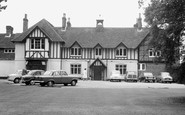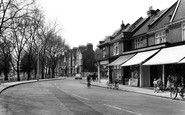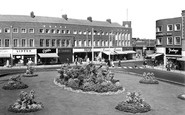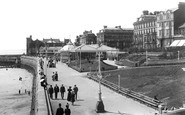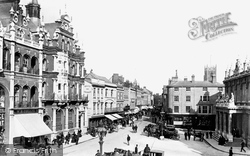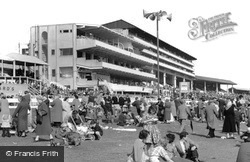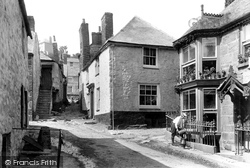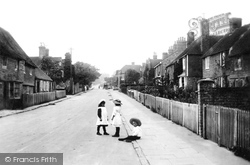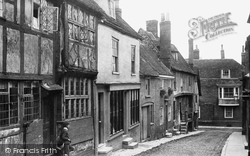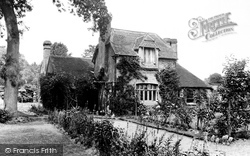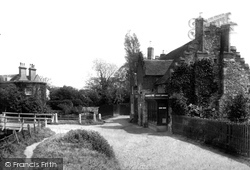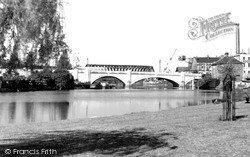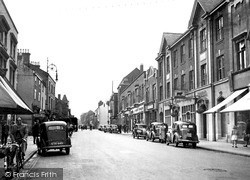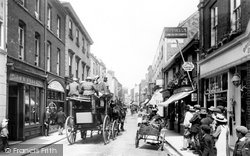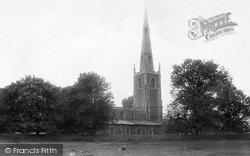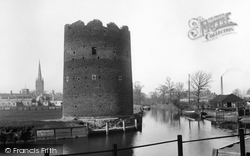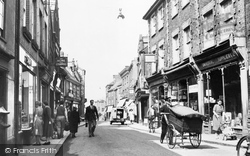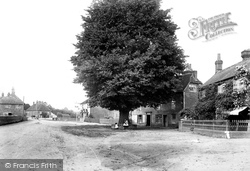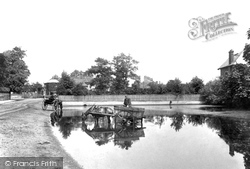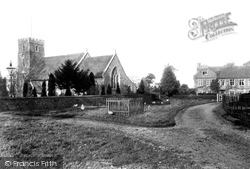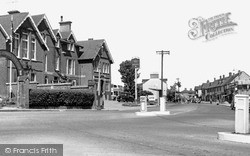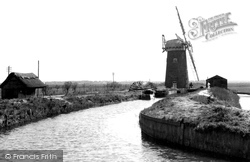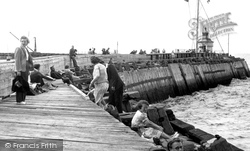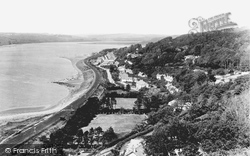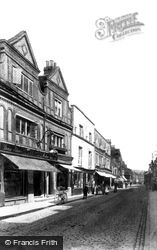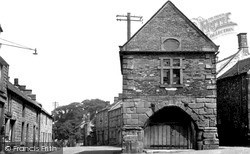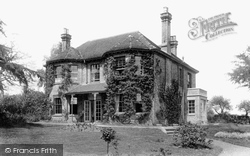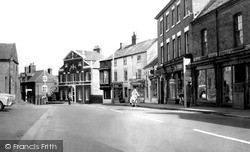Places
Sorry, no places were found that related to your search.
Photos
Sorry, no photos were found that related to your search.
Maps
Sorry, no maps were found that related to your search.
Books
Sorry, no books were found that related to your search.
Memories
741 memories found. Showing results 111 to 120.
Fairdene School
I was a pupil at Fairdene School from 1960-1965. I had lived in New York until I was 6, so being a girl with a Yankee accent in a school for young ladies was quite a challenge! The two female headmistresses, Miss Turner and Miss ...Read more
A memory of Chipstead by
Happy Days Growing Up In Barnes
The picture of Church Road where it ran parallel with The Crescent with all those familiar shops brings memories flooding back. I started life at 33 Glebe Road in 1944 and spent 5 happy years there before moving to ...Read more
A memory of Barnes by
Doon The Den
I stayed in Denhead and used to play down the den almost every day. We used to go to school via the gap either next to Ciff Bells house or the gap next to smiths shop. We used to go along the cliffs behind the scrappiest then straight ...Read more
A memory of Kennoway by
Pavenham 1945 1970
This is the village where I grew up, my parents moving into their very old, somewhat dilapidated cottage at the end of the war. This was 'The Folly' at the eastern end of the village opposite one of Tandy's farms. Why it had that ...Read more
A memory of Pavenham by
Bramcote Children's Hospital
I was placed in Bramcote 1983 at the age of 9 for a year. I liked it a bit but only as I was getting physically abused by my step mum at home daily,it was a break from the beatings for a week,we would all go ...Read more
A memory of Bramcote by
Stiperstones Poem
THE STIPERSTONES T’was long ago the Ludlow people vexed the Devil very sore He vowed to stone their homes and steeples until they were no more On Cranberries Hill he then collected his apron full of rocks and stones With ...Read more
A memory of Stiperstones by
Bull Ring And Market
I have just been back to Wakefield for a short break. I knew what to expect before I set off. But still don't know whose idea it was to do away with the old Bull Ring which I thought made it look more like a city. Why take ...Read more
A memory of Wakefield in 1959 by
Childhood In The 1950s
It breaks my heart to see how the years, short-sighted councillors and rapacious businessmen have ruined this once noble and beautiful seaside resort. How could anybody have countenanced destroying this view for the ...Read more
A memory of Bridlington by
Tin Tan Tommy
I moved to the hill as a child with my brother and sisters in the early 1950as to Dagnam Park Square. We had a lovely wood there to play in. Tin Tan Tommy was our best game, standing on the sand bin spying out the other kids and ...Read more
A memory of Harold Hill in 1956 by
Caerphilly
I used to live in Bartlett Street next to the bus station. My first job in Caerphilly was as a delivery driver for Harris & Ash DIY merchants, they were situated in a double fronted shop opposite the castle, although I came ...Read more
A memory of Caerphilly in 1966 by
Captions
493 captions found. Showing results 265 to 288.
On the left is the red brick and stone Lloyds Bank building, with its fretted skyline, while to the right is the neo-classical Post Office, built in 1881.
Loyal enthusiasm reached a peak with Queen Elizabeth II's arrival at the Derby, but spectators' loyalties were divided between the two horses that fought out the finish.
Here we see a corner in the old part of the fishing village, with a Victorian granite house added on the right. Flower pots are all around the upper bay window ledge.
Three small children play on the long village street leading up the hill to the church, lined with well-kept red-brick and timbered cottages and neat gardens, and with the Swan public house halfway along
Thomas House, the timber-framed building on the left, has been well restored, while the corner house was replaced in 1920 by a brick and tile-hung Neo-Georgian Lloyds Bank, a most attractive building fronting
The spire, a timber one added in 1702, was replaced by the present low tiled pyramid in 1924, for the visual benefit of the church.
On the banks of the Little Stour, whose waters flow peacefully under the bridge on the left, the small general stores and post office on the right served this little hidden village with its 18th- and 19th-century
This closer picture provides a clearer view of the power station operations.
The High Street (the A6 Leicester/Derby road) becomes Leicester Road as it runs south.
The red sandstone cliffs of East Devon break into the green and pastoral valley of the River Sid; Sidmouth lines the slopes of the gap.
The parish church of St Margaret is built from local brown cobbles. The tower has a fine spire divided by two decorative bands above the spire lights.
The tower was rebuilt in flint faced with brick in about 1390, at the time when the city took it over from the Cathedral Priory.
None of its brick buildings is outstanding yet the total effect is one of pleasing harmony. Many of the shops have retained their Victorian detailing.
The village name used to be spelt as two separate words - North Chapel. When the roads became negotiable, a brick-built toll house was constructed here.
This Thames-side town was once famed for its abbey, now almost entirely vanished; its stone was used for the building of Hampton Court.
This is the manorial core of Saling: the church and the hall. St James' dates from the 12th century, but its early details have been obscured by Victorianisation.
In the foreground stands the arch of the Conservative Club, with the solid brick-built Cambridge Hotel next door.The honey-pot style telegraph poles carry lines to the surrounding buildings.
Here we see a typical Broadland brick tower drainage mill. It has four patent sails and a fantail, and drove a turbine pump.
The Gorleston Pavilion (left), always a popular venue with its dance hall and theatre, is hosting the summer show— The Revumorists.
The village stands on the east side of the Towy where the river breaks out to sea through a widespread expanse of sandbanks at low tide.
On the left of the cobbled High Street, notably devoid of any traffic, is Edward's Drug Store, which later passed to Boots. The building, in brick and stone, dates from the late 17th century.
The 17th-century Old Market House at Winster was the first property to be acquired by the National Trust in the Peak District, in 1906.
The old rectory, of warm red brick, with its tall chimneys and light-gathering broad bay windows has creeper running rampant all over it.
Remnants of the Earl of Leicester's castle which was destroyed in the early 13th century can still be seen in this rather dismal but interesting village.
Places (0)
Photos (0)
Memories (741)
Books (0)
Maps (0)

